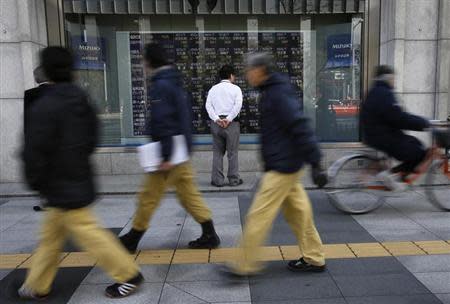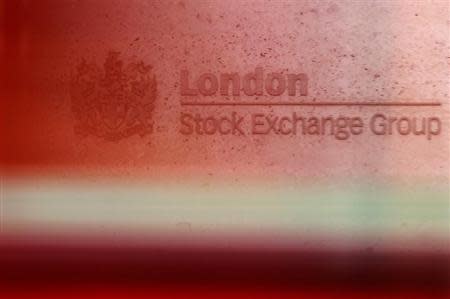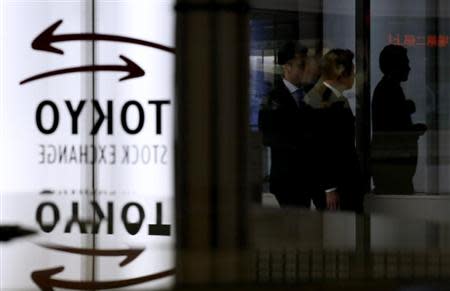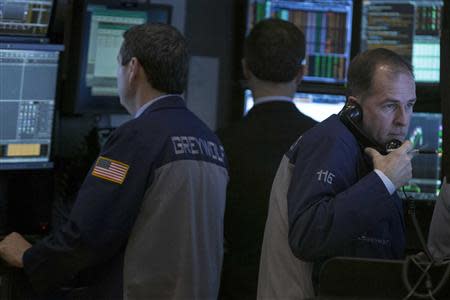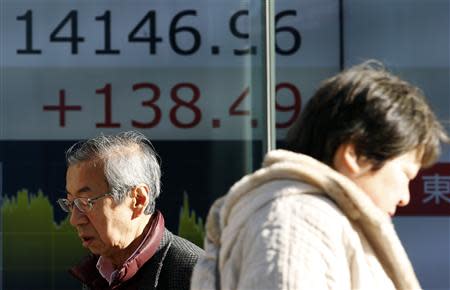Stocks sluggish, dollar firms as G20 reaction muted
By Lisa Twaronite TOKYO (Reuters) - Asian stocks wobbled and the dollar firmed in early trade on Monday, as investors appeared to give no more than a passing nod to the Group of 20's latest commitment to spur faster global growth. MSCI's broadest index of Asia-Pacific shares outside Japan was struggling to turn positive, while Australian shares shed about 0.1 percent. On Wall Street on Friday, stocks were off slightly on options-related expirations. The final weekend communique from the two-day meeting of G20 finance ministers and central bankers in Sydney said they would increase investment and employment, generating more than $2 trillion (1.20 trillion pounds) in additional output over five years while creating tens of millions of new jobs, signalling optimism that the worst of crisis-era austerity was past. The communique acknowledged emerging nations' concerns that the Federal Reserve consider the impact of its monetary stimulus withdrawal, which has led to bouts of capital flight from some of those markets. However, minutes released last week from the Fed's most recent meeting showed that policymakers generally "anticipated that the economy would expand at a moderate pace in coming quarters," suggesting the pace of stimulus-tapering will continue for now. "There was no realistic expectations that EM would get any relief but they may be more vulnerable to bad news in the aftermath." said Steven Englander, head of G10 currency FX strategy at CitiFX, in a note to clients. "Similarly the free pass to tapering may be mildly USD positive," Englander added. The dollar edged up against a basket of currencies after posting its first weekly gain in three weeks. The dollar index rose to 80.254, moving away from last week's low of 79.927 touched on Wednesday, which was its lowest since late last year The dollar rose about 0.1 percent to 102.58 yen, after rising to a three-week high of 102.82 yen on Friday. The euro also added about 0.1 percent on the day to 140.92 yen, after touching 141.26 yen on Friday, its loftiest level since January 24. The yen is likely to remain under pressure on expectations of more easing steps from the Bank of Japan. A Reuters poll last week showed the BOJ is expected to ease monetary policy further by the summer, to give the economy a lift as the effects of the government's stimulus begins to wane. Economists surveyed remain sceptical that the central bank will achieve its 2 percent inflation target by early next year. The euro was nearly flat on the day at $1.3738, not far from a high of $1.3773 touched on Wednesday, its highest level since January 2. Investors await euro zone inflation on Friday to gauge whether the European Central Bank has enough ammunition to ease monetary policy at its next meeting on March 6. "The weaker the data, the more the speculation will likely mount that the ECB will take additional action," Marc Chandler, chief global currency strategist with Brown Brothers Harriman, said in a research note. "The point is that between the data, ECB meeting and the US employment data on March 7, there is sufficient event risk to deter a strong euro gains from here," Chandler said. (Editing by Shri Navaratnam)

 Yahoo News
Yahoo News 